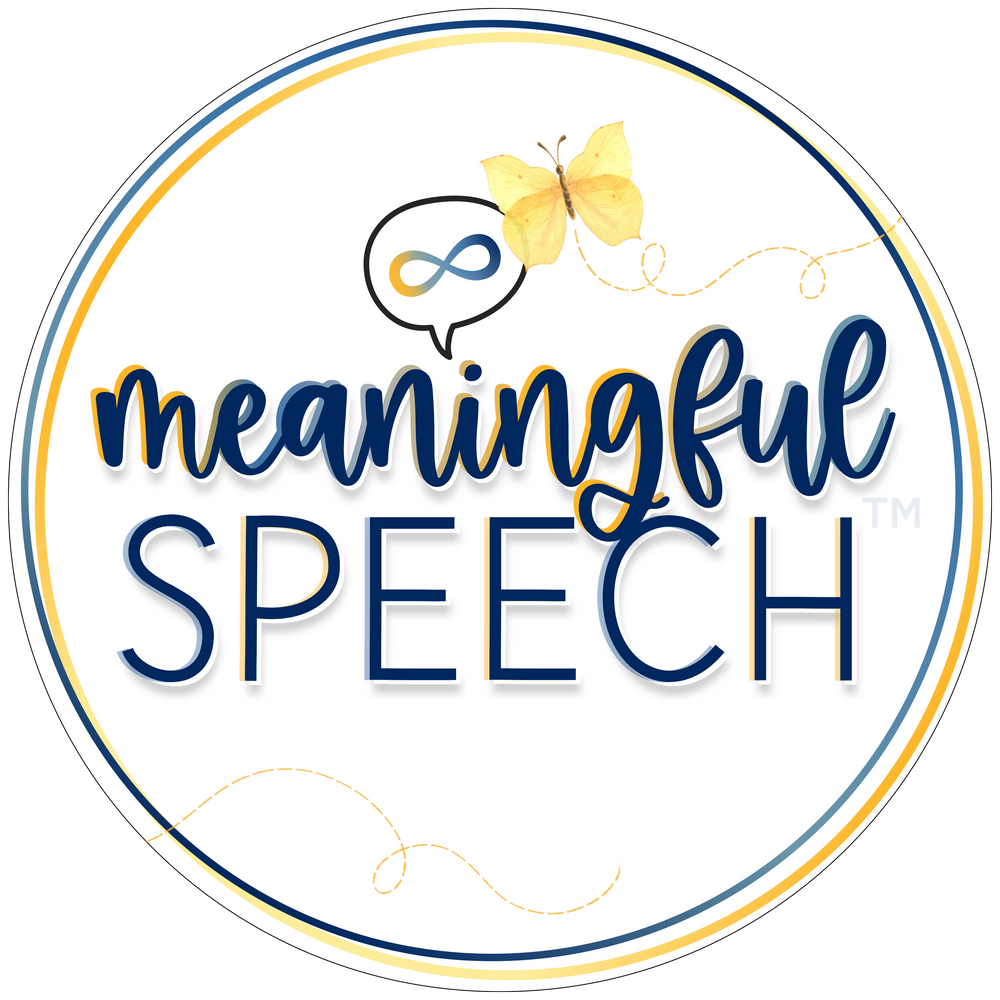Does my gestalt language processor need support?
Jan 02, 2025
Gestalt language development is a natural and normal way for children to acquire language. Like analytic language processors, gestalt language processors may experience delays in their language development. While some children progress through the stages of gestalt language development independently, others may require support from a speech-language pathologist (SLP) trained in the Natural Language Acquisition (NLA) protocol. How can you determine if your child or client might benefit from specialized support? You’ll want to consider these factors…
Age and Stage 1
Although there are no established age norms for each stage of gestalt language development, certain signs can indicate when support might be beneficial. For example, if a preschool-aged child (3-5 years) or older is still primarily using delayed echolalia or gestalts (Stage 1) to communicate, they likely need support. Typically, both gestalt and analytic language processors who progress through the stages of their language development on their own are using mainly self-generated language by this age.
Meeting Basic Needs
A child’s ability to have their wants and needs met is another important consideration. If a child in Stage 1 is primarily using media gestalts, single words, or is minimally, inconsistently, or non-speaking, they might struggle to communicate effectively. In these cases, a speech-language pathologist with expertise in gestalt language development can support and create goals for:
- Increasing the variety and amount of mitigable gestalts the child uses to communicate.
- Introducing robust AAC (Augmentative and Alternative Communication) to ensure the child’s basic needs are met and provide them with a reliable mode of communicating.
Intelligibility
Young children in Stage 1 often produce language that sounds like intonationally defined strings or “jargon,” which can be difficult to understand. While this is developmentally typical for very young children, older children who remain mostly unintelligible (difficult for the listener to understand) may benefit from:
- Modeling of shorter potential gestalts.
- AAC systems to support a reliable mode of communication
- Considering motor planning difficulties or dyspraxia
Neurodiversity-Affirming Social Communication
As gestalt language processors progress to the later stages of 4 and beyond, we may begin supporting them in other areas like social communication. Social communication goals should be neurodiversity-affirming rather than aiming to make the child appear more neurotypical. Instead of traditional goals like eye contact or “whole-body listening” consider focusing on:
- Self-advocacy skills.
- Understanding differences in communication styles.
- Concepts like the Double Empathy Problem, Spoon Theory, and energy/emotional regulation.
- Problem-solving and perspective-taking skills.
For more information on neurodiversity-affirming social communication goals, check out this blog post HERE.
Finding the Right Support
How can you ensure a speech-language pathologist is knowledgeable about gestalt language development and child-led, neurodiversity-affirming therapy? Here are some steps:
- Ask Questions: When reaching out to speech-language pathologists, inquire if they’re familiar with gestalt language development and the NLA protocol. If not, ask if they’re open to learning.
- Share Resources: Provide free references and resources to help them get started. You may consider sending them our FREE Masterclass and/or Beginner’s Guide to AAC & Gestalt Language Processing. We have more free resources available HERE.
- Check the NLA-Trained Clinician Registry: This registry includes speech-language pathologists who have completed the Meaningful Speech course and passed the final assessment. The speech-language pathologists listed are those that accept private clients. Find one HERE.
- Explore Neurodiversity-Affirming Therapists: Look for speech-language pathologists who prioritize child-led therapy and are neurodiversity-affirming. Check out this blog post with questions to ask to determine whether a provider is neurodiversity-affirming HERE.
Want to learn more in-depth information about how to support gestalt language processors?
- There are many free podcasts, webinars and articles to get you started. A comprehensive list of resources can also be found on our website. We just released a new FREE masterclass on echolalia and child-led therapy that is perfect for anyone starting their learning journey or on the fence about purchasing our courses!
- Consider taking the Meaningful Speech course to learn more about how your child or client processes language, how you can help support them from echolalia to self-generated (original flexible) language, child-led therapy, and neurodiversity-affirming practices. Looking for something shorter? We have a 1-hour introductory course perfect for extended family, daycare or school staff.
- Consider taking our AAC + Gestalt Language Processing course. It will teach you how to identify, evaluate and support gestalt language processors who use AAC or who you think might benefit from AAC.
- Look for a speech-language pathologist (SLP) who "gets it" and can help you in supporting your child's language development. Check out our registry for SLPs who understand gestalt language processing and child-led therapy.
- Are you a school-based or private practice clinician looking for intake forms for new clients/students or creative visual reminder posters for your space? Check out the Meaningful Speech Marketplace.
- Want to learn more about starting a niche private practice? Watch our 1-hour webinar on starting a niche private practice hosted by Alex Zachos and Jess Teixeira from the Meaningful Speech team HERE.
